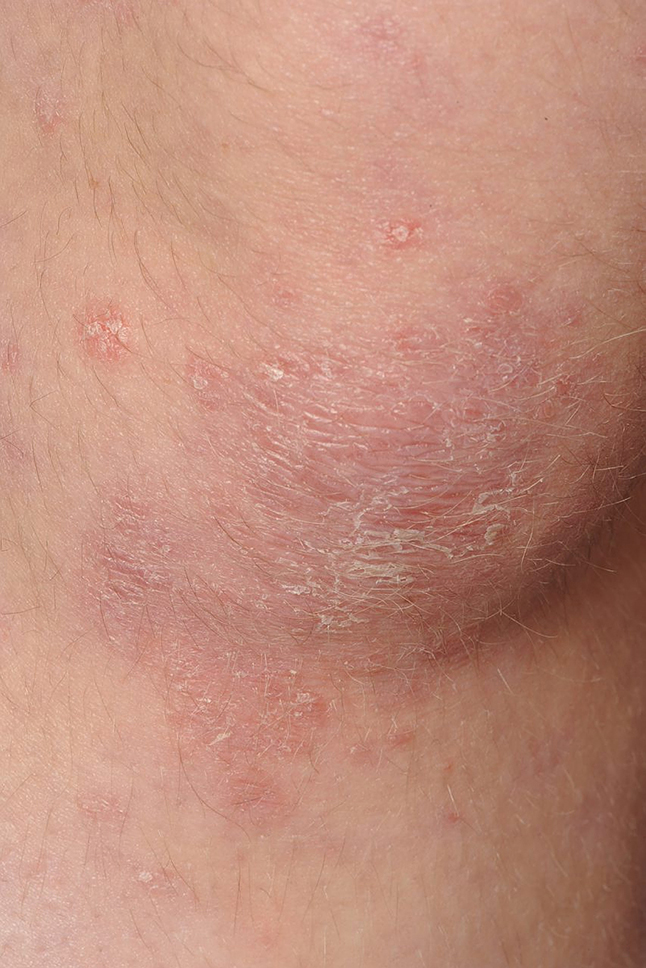-
(a) What is the diagnosis?
Show Answer
The diagnosis is almost certainly psoriasis as the elbows, knees and scalp are the areas most commonly affected. Key signs are the scaliness and the well-defined borders of the lesions.
-
(b) What are the key points in the history?
Show Answer
Psoriasis can start at any age. Ask about family history as there is a strong genetic aspect to the pathogenesis of psoriasis. Find out what treatment she has already tried, perhaps over-the-counter medications or topical steroids that were prescribed for another reason. These may have altered the appearance of the psoriasis. Enquire about the effects of the condition on the patient’s life: her answers may guide you concerning how ‘aggressive’ you should be over therapy advice.
-
(c) What advice should you give the patient?
Show Answer
Try to provide as much education as possible and let the patient know about reliable sources of information, such as the patient self-help organisation, the Psoriasis Association. Arrange for the patient to spend time with a dermatology nurse specialist (if available in your area) to explain how best to apply and use topical therapies. Stress that it is possible to control psoriasis, but this depends on regular long-term therapy and that improvement takes time.
-
(d)What therapy would you recommend?
Show Answer
The scales in psoriasis are often a major reason for psoriasis affecting quality of life. Frequent use of emollients is very useful to reduce the amount of scaliness. Topical therapy would be the first approach: probably the most effective and ‘easiest’ to use is a combination of topical calcipotriol (a vitamin D analogue) and betamethasone valerate (a potent topical corticosteroid), applied once a day. For the scalp, initially use a calcipotriol scalp application.
-
(e) What is the likely prognosis?
Show Answer
It is not possible to predict the course of the disease in an individual. Psoriasis usually behaves as a chronic disease, but there is the possibility that it may eventually resolve. In some people it may become very widespread, necessitating the use of ultraviolet therapy or systemic drugs.
-
(f)What other aspects of this patient’s health should you consider?
Show Answer
There is an association between psoriasis and several other conditions described as the ‘metabolic syndrome’. Patients should be advised and helped not to smoke, to keep their weight down and to exercise: normal advice for any individual but especially important because of the increased risk of cardiovascular disease, hypertension, obesity and diabetes.


